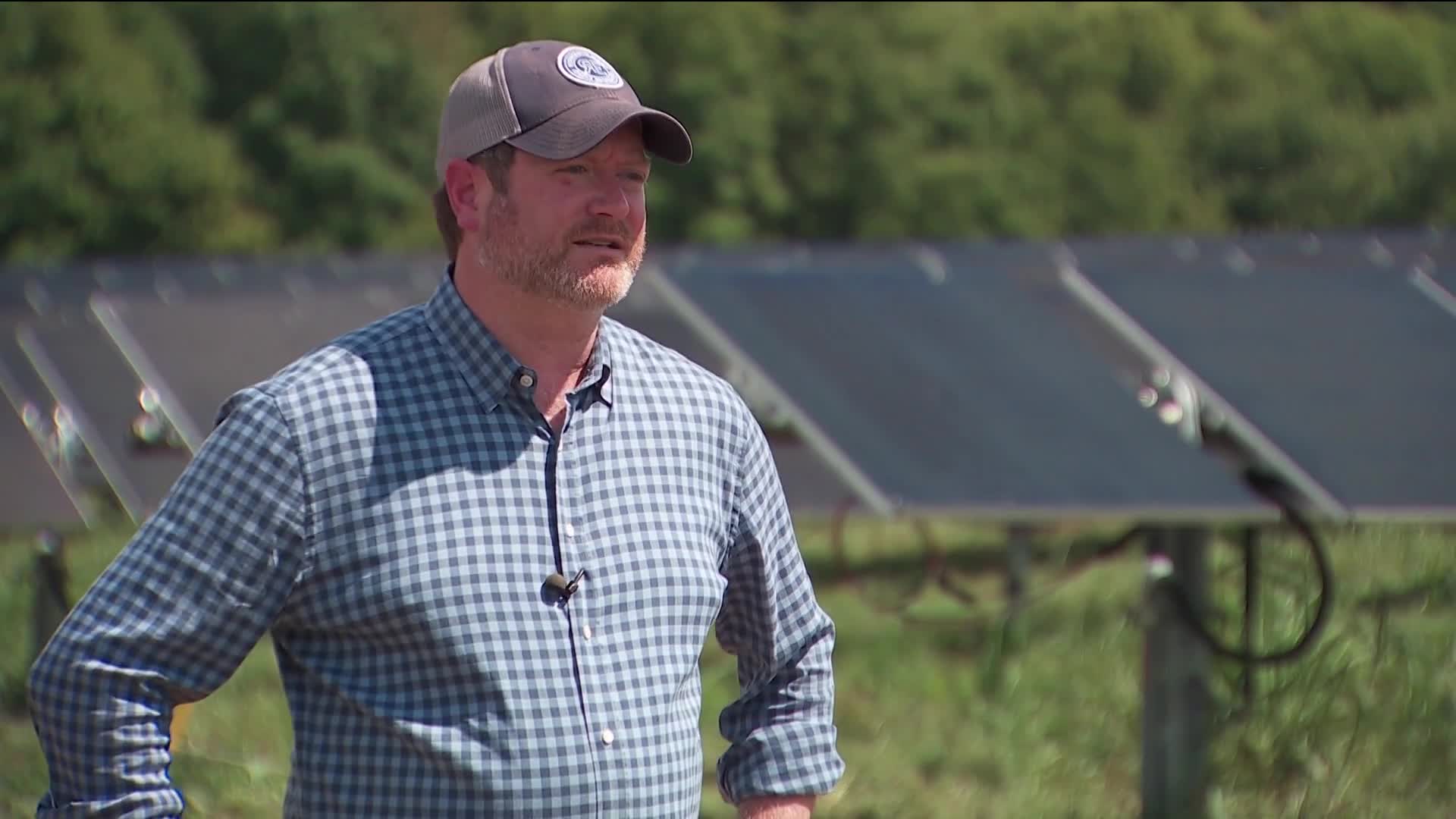FRANKLIN, Ky. (WTVF) — Middle Tennessee and southern Kentucky are home to thousands of acres of farmland producing cattle, crops, and increasingly, solar energy. But a recent federal policy change is raising questions about the future of agricultural solar projects.
The USDA recently announced it will no longer fund new solar projects, citing concerns about farmland loss. The decision comes as solar farms work to keep energy costs down, while some argue they're making farmland more expensive and less accessible to traditional farmers.
Katie Carothers, lead shepherd for New Slate Management, represents a new model of agriculture that combines solar energy with traditional farming. She and her husband transitioned from breeding sheep in Ohio to grazing around 600 acres at solar farms in Kentucky and Tennessee.
"There's a lot we can get done with one of these dogs and a couple of panels, and an old stock trailer," Carothers said.
The partnership with Silicon Ranch has allowed her grass-fed sheep to reach retail stores, creating what she calls their greatest business opportunity.
"This was the greatest opportunity we've had to create a full-time farming business without having any generational land or even generational experience," Carothers said.
Her sheep serve a dual purpose on the solar installations, helping maintain the vegetation beneath the panels.
"Using the sheep allows us to thin out the thatch and make it more, I guess, make it easier to maintain the vegetation underneath these panels," Carothers said.
Silicon Ranch Corporation, a Nashville-based developer, owner, and operator of solar facilities nationwide, operates the Franklin, Kentucky farm where Carothers' sheep graze.
Matt Beasley, chief commercial officer at Silicon Ranch, said solar has become the fastest-growing generation source in the United States over the last decade.
However, critics argue that solar farms have made farmland more expensive and less available to traditional farmers. USDA Secretary Brooke Rollins identified access to land as one of the largest barriers for new and young farmers.
The USDA reports Tennessee has already lost more than 1.2 million acres of farmland and could lose 2 million more by 2027.
Beasley disputes concerns about solar threatening agriculture, pointing to a Tennessee General Assembly study.
"Tennessee General Assembly, a couple of years ago, commissioned a study that took 18 months, conducted over 400 interviews, and what they concluded at the end of that study that the Tennessee General Assembly commissioned was that solar is not a threat to agriculture," Beasley said. "In fact, solar provides an opportunity to keep land in agriculture and produce energy at the same time."
Beasley argues that the two industries can coexist beneficially.
"We're not only producing clean, renewable energy, but also grass-fed meat at the same time, and also improving the health of our soil, the health of the vegetation, the health of the land," Beasley said.
Secretary Rollins announced the U.S. will no longer use taxpayer dollars to fund solar projects on farmland or allow panels made by foreign adversaries in USDA-funded projects.
Beasley said every solar panel and component on the Franklin farm was manufactured in the United States.
"We're actually helping to bring that ag economy back here to the United States," Beasley said.
This story was reported on-air and written by Kelsey Gibbs and has been converted to this platform with the assistance of AI. Our editorial team verifies all reporting on all platforms for fairness and accuracy.

The news surrounding student loan repayment has been ever-changing over the last few years. When it comes to your money, confusion is never a good thing. Thankfully, Robb Coles helps us sort out the path forward. Check out his story for some practical tips and insight behind the latest changes.
- Carrie Sharp





